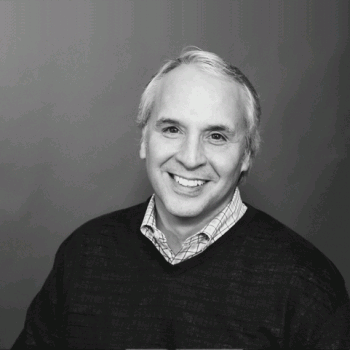Bio
- Rudy Garza focuses on the development of all portfolio companies, syndication partnerships and deal flow. Through mentoring as well as serving on portfolio boards, he is instrumental in driving success through defining and then guiding the implementation of well-grounded business and marketing strategies. Rudy applies his expertise which includes an extensive knowledge of successful hardware and software business models, market shaping services, business growth strategies and talent sourcing. Rudy knows start-ups and what it takes to build market value.
- Rudy is a native of Austin and a recognized Texas leader in the technology start-up industry. He started G-51 Capital in 1996 a few blocks from the University of Texas campus and now has served as an investor and board member for over 20 companies, selling numerous to publicly traded strategic acquirers including SAP, ADP, Prudential, and Cisco Systems among others.
- Rudy has demonstrated success in seed-stage business identification and development not only in Texas but across the country, leading to the firm’s nationally ranked return performance. He is an active leader in the venture community, including longstanding participation in NVCA and the Texas Venture Capital Association. He has led syndicated investment deals with numerous angel investors, institutional and corporate venture capital firms nationwide.
- Rudy received his MBA from The University of Texas at Austin and his BBA from St. Edwards University. He currently serves as Chairman of the Board of the University of Texas Alumni Association (“Texas Exes”). Rudy also is a lifetime honorary trustee of the Dell Children’s Medical Center Foundation.
- [Photo by René Lego Photography]
- TRANSCRIPT
- WHAT ARE YOUR STRENGTHS?
- I think what I personally bring to the table for entrepreneurs that are going to do business with us is a holistic approach on how to become successful. The perspective that I try to bring is that sort of 20,000-foot view of the overall market opportunities.
- TALK ABOUT G-51 CAPITAL...
- G-51 is what we call a "super angel." We like helping people and we like when our entrepreneurs make money. Our super angel strategy is funding a small number of companies and deploying a meaningful amount of capital, half a million to $1 million in these companies, really rolling up our sleeves and working with them to try to help them make a phenomenal success for themselves, for the business, and for the community itself.
- If you look at the companies that we have, a lot of our teams are repeat entrepreneurs, and they're repeat entrepreneurs because they've made money with us, the like the way we do business, and at the end, I think we bring more of a life perspective than just, "Let's go make money and let's go build a business."
- WHAT GOES INTO YOUR INVESTMENT DECISION?
- When we're thinking about making an investment, the main thing we look at are the people and the founders. We want to help them basically have an extraordinary launch, and find that first zero to million, zero to $5 million revenue track.
- If you think about it, all these companies are tiny and the resources are limited, and so we've got to find the best way to leverage their business opportunity. So if we can spend the right amount of time and really figure that out to help these guys nail it, then we've done our job, and we're typically pretty successful.
- WHAT'S THE DRAW OF AUSTIN FOR STARTUPS?
- Relative to startups, I think the talent pool in Austin is outstanding. One, there is sort of the inbred entrepreneurial culture that's deeply rooted in people that are in Austin or that are coming to Austin.
- And two, when we can't find the local talent for the projects or the companies that we're working on, what we're finding is that everybody's interested in moving to Austin. You can make money working in LA or you can make money in New York, but think about your return on life, and you can buy twice the house, you don't have a state income tax.
- It's a college town, so you've got lots of young energy, and then on top of that you have all this technology interest, global interest. When you go to South by Southwest, you're going to meet people from all around the world that are coming here. You add all those things up and people have a hard time saying no to ATX.
